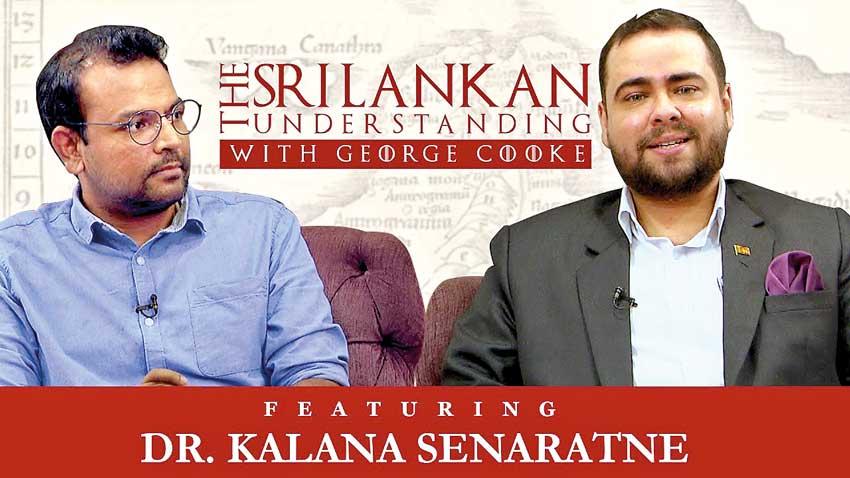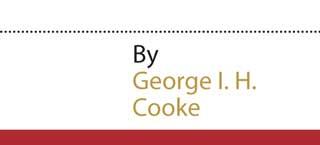22 Apr 2021 - {{hitsCtrl.values.hits}}
Spotlight on power sharing, historic demands, missed opportunities and contemporary challenges

‘The Sri Lankan Understanding’, the latest media platform, launched in March 2021, gears towards exploring the path taken by Sri Lanka which possesses the potential for a vibrant future. This platform seeks to identify moments and memories as well as the peaks and pitfalls of the country and the impact they have on the future. Bringing together academics, historians, diplomats, writers and key personalities, ‘The Sri Lankan Understanding’ is aimed at filling a lacuna in society wherein comprehending grasping realties and understanding the opportunities ahead; which are sorely lacking.
Sri Lankan Understanding’, the latest media platform, launched in March 2021, gears towards exploring the path taken by Sri Lanka which possesses the potential for a vibrant future. This platform seeks to identify moments and memories as well as the peaks and pitfalls of the country and the impact they have on the future. Bringing together academics, historians, diplomats, writers and key personalities, ‘The Sri Lankan Understanding’ is aimed at filling a lacuna in society wherein comprehending grasping realties and understanding the opportunities ahead; which are sorely lacking.
 The second episode is on ‘Power Sharing: Historic Demands, Missed Opportunities and Contemporary Challenges’. It features Dr Kalana Senaratne, a senior lecturer in law at the University of Peradeniya, who had his tertiary education at the University of London, the University College London and University of Hong Kong. Having worked with the UNDP in East Timor, he was also attached to the Ministry of Foreign Affairs of Sri Lanka and the Social Scientists Association. Having apprenticed under the late esteemed Judge C. G. Weeramantry, Dr Senaratne is also a visiting lecturer at several academic institutions. Dr Senaratne highlighted what power sharing entails and how it defines the destiny of a people. Noting the aspects of controversy connected to power sharing Dr Senaratne provided examples of different societies in which demands are made and the means through which power is shared or withheld. This, he pointed out was the root of the issue wherein the question that needs to be asked is whether a particular group wants to share power or not.
The second episode is on ‘Power Sharing: Historic Demands, Missed Opportunities and Contemporary Challenges’. It features Dr Kalana Senaratne, a senior lecturer in law at the University of Peradeniya, who had his tertiary education at the University of London, the University College London and University of Hong Kong. Having worked with the UNDP in East Timor, he was also attached to the Ministry of Foreign Affairs of Sri Lanka and the Social Scientists Association. Having apprenticed under the late esteemed Judge C. G. Weeramantry, Dr Senaratne is also a visiting lecturer at several academic institutions. Dr Senaratne highlighted what power sharing entails and how it defines the destiny of a people. Noting the aspects of controversy connected to power sharing Dr Senaratne provided examples of different societies in which demands are made and the means through which power is shared or withheld. This, he pointed out was the root of the issue wherein the question that needs to be asked is whether a particular group wants to share power or not.
The programme will be telecast on Wednesday @ 8.30PM
Repeat programme on Thursday 8.30 AM, 12.30 PM and 4 .30PM
Sunday 11.00 Am
Specifying landmarks of power sharing debates in Sri Lanka, Dr Senaratne traced the developments of the 1920s where discourse was initiated by leaders and a federal solution was articulated to address the issue of divided communities. He identified varied forms of demands that emanated at different times and the manner in which they were addressed. From independence on wards he outlined the 1950s as being decisive with numerous attempts being made. He also noted the failure that was encountered. Dr Senaratne emphasised the Indo-Lanka Accord, the 2000 draft constitution which offered more devolution of power, and other instances of constitutional reforms and power sharing including the APRC process in the middle of the first decade of this century.
Speaking on missed opportunities and the need for critical reflection Dr Senaratne questioned the nature of such opportunities and how they were interpreted. A better discussion on power sharing might have been appropriate at these junctures with some degree of compromise. He also focused on external pressures that Sri Lanka experienced in the past wherein the need for reform and power sharing have remained a consistent issue. Dr Senaratne did however allude to the need for addressing such concerns irrespective of the external pressure given that it is about equality and power of the people, within the country that requires attention.
Reflecting upon his work with a Sri Lankan who served as the Vice President of the International Court of Justice, C. G. Weeramantry, Dr Senaratne noted that the late Judge approached power sharing from a critical perspective, especially territorial power sharing as he was not keen on seeing Sri Lanka as a federal state. However he was strongly supportive of non-territorial power sharing, independent institutions and true equality. He highlighted that from Judge Weeramantry he had learned that one could be a very humane individual who was supportive or against varied forms of power sharing, but still hold on to the principles of equality and non discrimination as well as the need to recognize divergent views.
Dr Senaratne stressed that concerns arising out of power sharing cannot be easily resolved. He rationalised that the moment we divide ourselves over ethnicities, religions, schools or any line of division, we get to the root of the problem, which cannot be resolved. He highlighted the need to keep raising awareness about such issues, especially among the youth and children, by getting them to think more broadly without promoting one or another specific solution. The episode saw the raising of the need to promote rights, but also focus on responsibilities and how everyone in the country needs to rally round a common denominator which is the label of being Sri Lankan. This is the greatest unifying factor we have on the island.
‘The Sri Lankan Understanding’ which is geared towards generating an interest and intrigue in the multifaceted aspects of the country airs every Wednesday, with repeats on Thursday and Sunday on HiTV and is available on Youtube. The programme is for those keen on gaining a clearer perception of the historic features, and prospective facets of the pearl of the Indian Ocean, as it covers a gamut of issues.
27 Nov 2024 19 minute ago
27 Nov 2024 22 minute ago
27 Nov 2024 26 minute ago
27 Nov 2024 1 hours ago
27 Nov 2024 3 hours ago